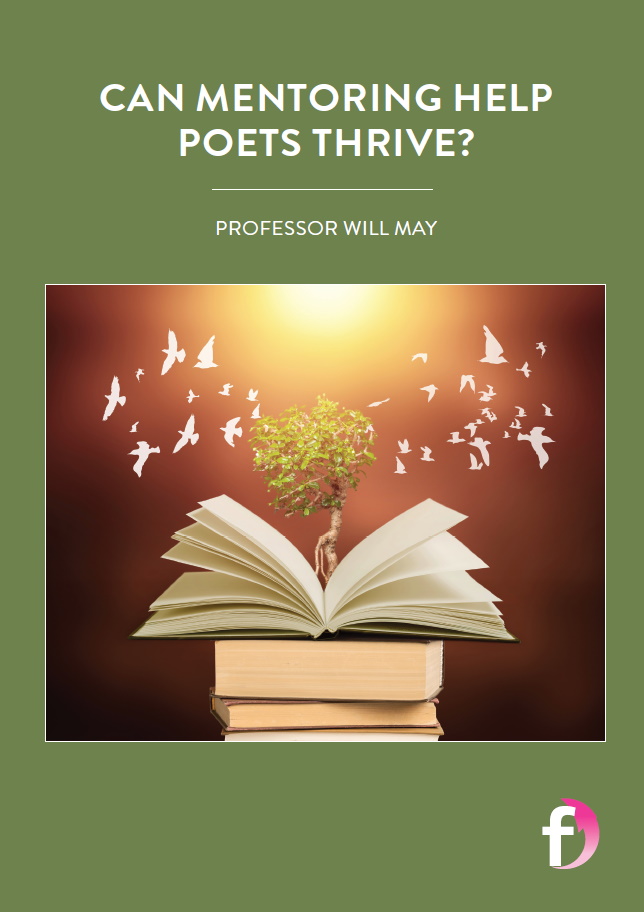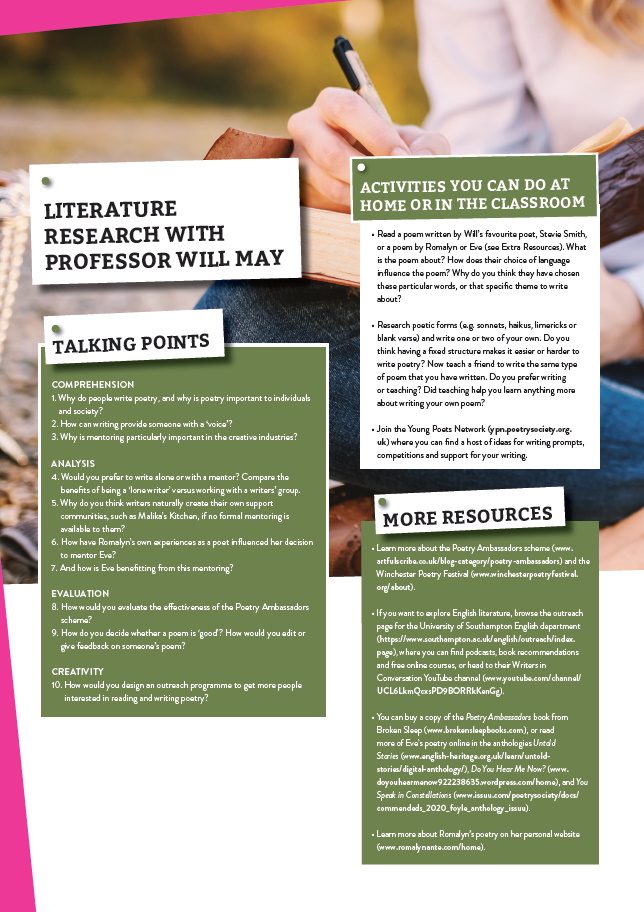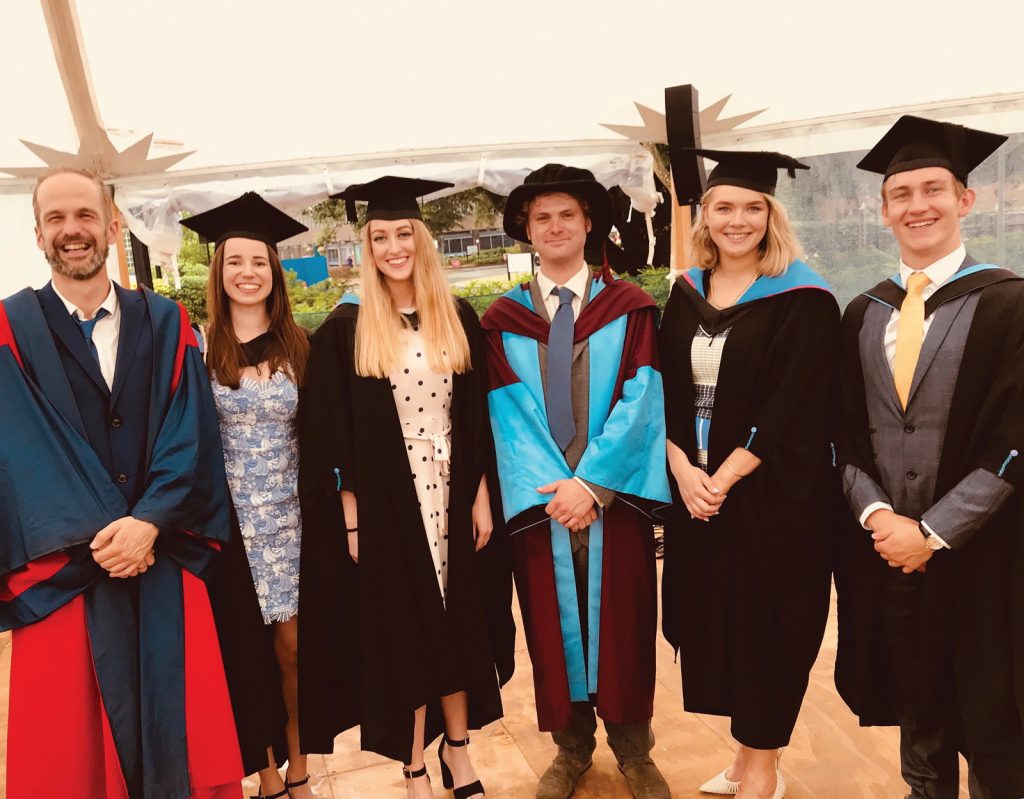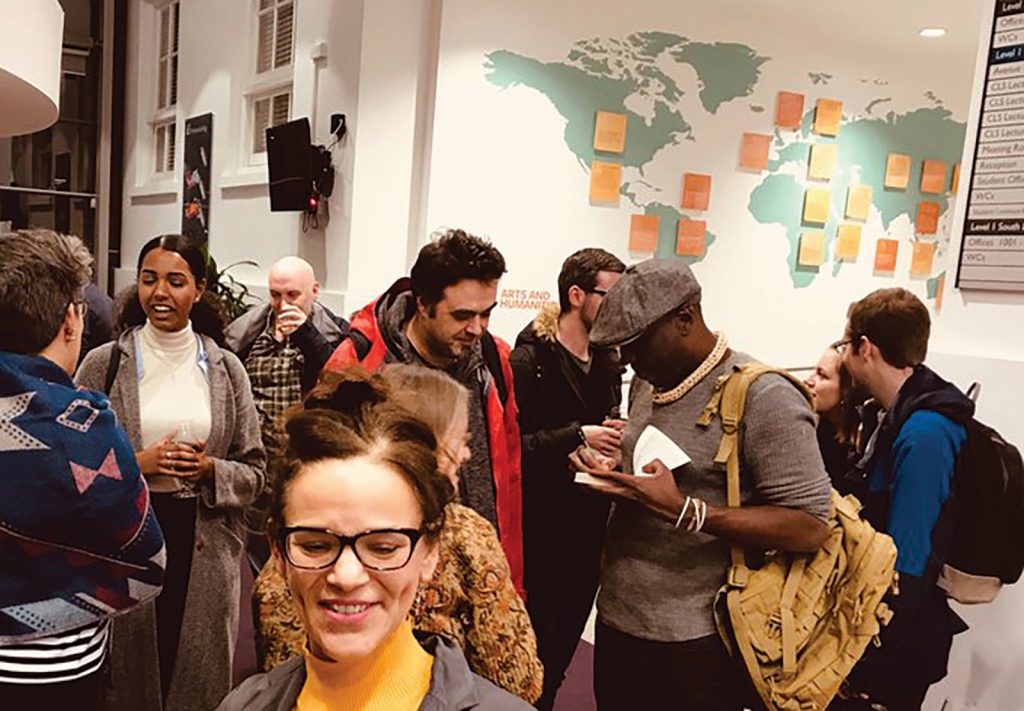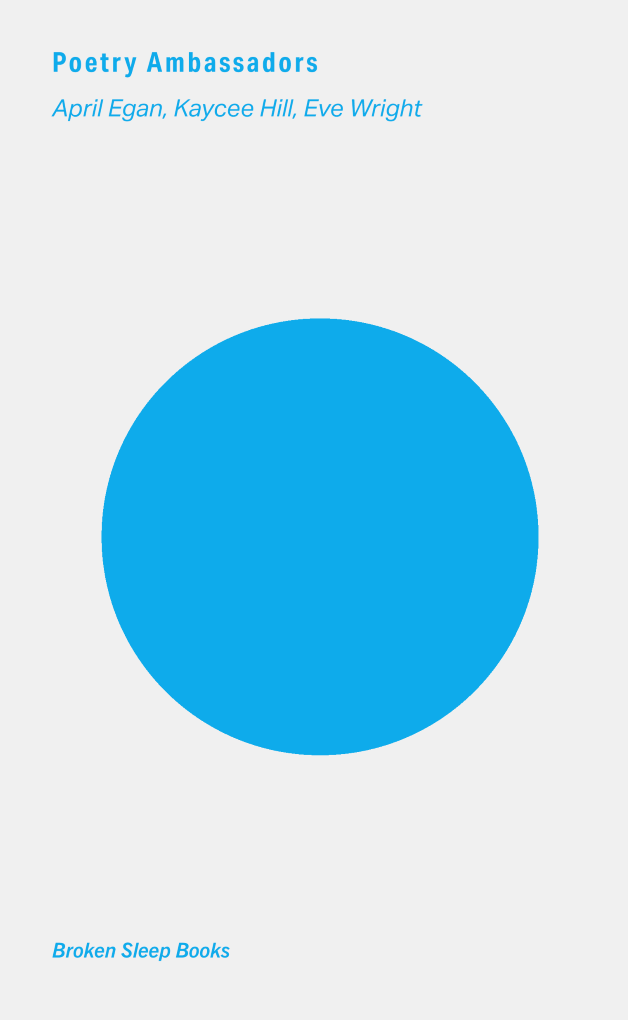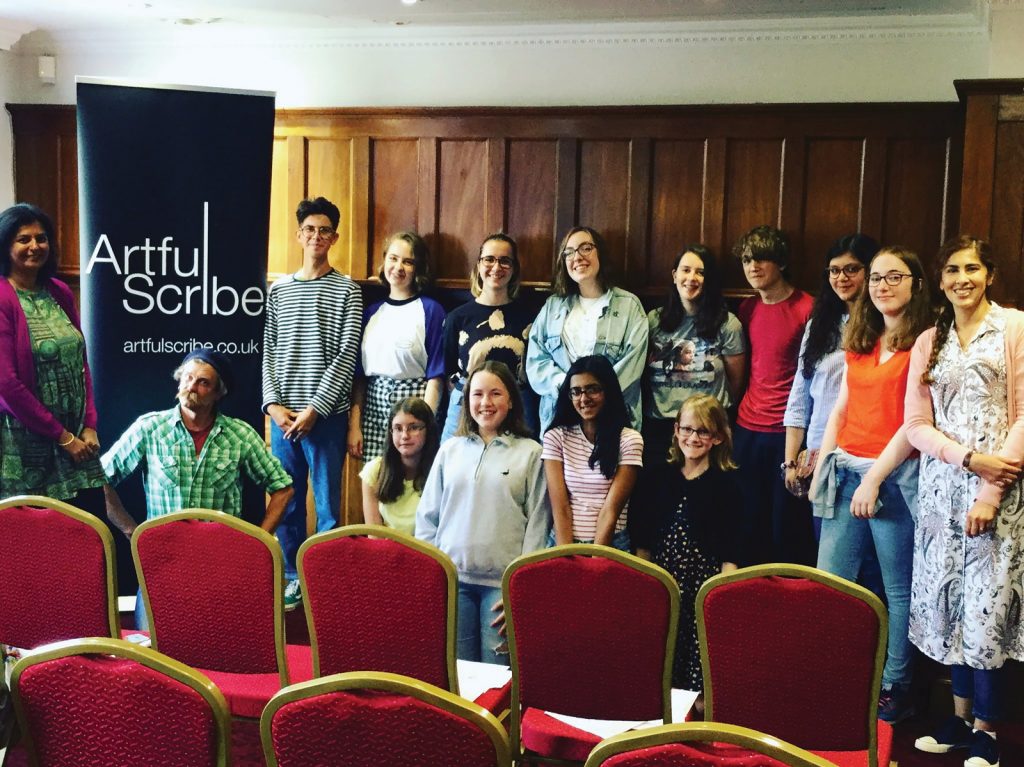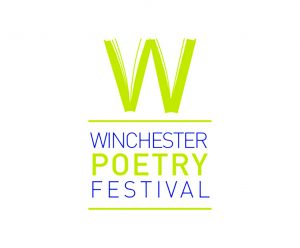Can mentoring help poets thrive?
How important has mentoring been in the creative industries? This is what Professor Will May from the University of Southampton in the UK is trying to determine. He has used his findings to establish Poetry Ambassadors, a mentoring programme to support young poets and help them to develop their creative abilities
TALK LIKE A LITERATURE RESEARCHER
ANTHOLOGY – a collection of poetry
CREATIVE INDUSTRIES – industries based in individual creativity, skill and talent, such as arts, writing, music, fashion, advertising, computer gaming, television and film
MENTOR – an advisor who helps train and guide a more novice colleague
MENTEE – the recipient of a mentor’s advice and guidance
The romantic image of the lone poet is not true to life, says Professor Will May of the University of Southampton, as writers and poets are supported by a network of mentors who devote time and energy to encourage each other in their creative endeavours. Will is exploring the role of mentoring in the creative industries and has uncovered how both public initiatives and informal mentoring communities. But Will’s work is about more than just appreciating literary history – he has also put his findings into practice by creating a mentoring programme for young poets, allowing them to develop their talents under the guidance of experienced writers.
WHAT NETWORKS HAVE SUPPORTED CONTEMPORARY BRITISH POETS?
Contemporary British writers and poets have had access to both public and informal mentoring and support. The UK has nurtured literary expression through initiatives run in local libraries, community organisations, like Centerprise in Hackney, and formal schemes, like the Ledbury Emerging Critics Programme. We can also trace its history by looking at correspondence between poets, publishers and editors across the country.
Equally (or perhaps even more) important are informal mentoring and networking groups. Will cites the example of poets Malika Booker and Roger Robinson, who founded a writer’s collective that met weekly in Malika’s kitchen. “It grew organically, creating a space for marginalised writers to hone their craft,” he says, “and now Malika’s Kitchen has not only become a regular scheme run by the Poetry Society, shaping the work of some of our best contemporary writers, but has satellite groups across the world.” During his research, Will has discovered that many poets create their own mentoring communities with other poets, joined by their mutual love of writing.
Unlike other sectors, the creative industries are often funded on a project basis, with little support for professional development or training. Groups like Malika’s Kitchen have played a vital role in helping writers grow through a shared exploration of their writing. Will is exploring this role by collecting stories from mentors and mentees who participated in these informal networks, to discover how their mentoring experience shaped them as artists.
Will’s research is more than just retrospective. He believes mentoring in poetry can act as a model for the creative industries. “People tend to read, write and publish poetry to enrich their lives rather than fill their pockets,” he explains. “This insulates poetry from creative sectors more dependent on market trends and means it has been able to develop sustained knowledge and expertise about mentoring that hasn’t yet crossed into other creative industries.” The poetry community is an excellent case study for mentoring in the creative industries and a model for other artistic and literary communities.
WHAT IS THE POETRY AMBASSADORS SCHEME?
In partnership with the Winchester Poetry Festival and the literature development organisation Artful Scribe, Will launched the Poetry Ambassadors scheme to connect experienced poets like Romalyn Ante with young poets like Eve Wright. “Formal mentoring schemes can act as lightning rods of change for the mentors and mentees involved,” says Will. Mentees gain confidence in their ability and develop greater ambitions for their writing. Mentors in turn benefit from the opportunity to work with a younger generation of writers and contribute to the future of the literary community.
“I’d really like to just feel a little bit more asserted in my writer self, so to speak,” says Eve, of their hopes for the Poetry Ambassadors. “Writing is a very isolated craft, especially when you’re just starting, so I’ve really appreciated the support with discovering my poems with another poet.” Eve’s mentor, Romalyn, helps them with both the technical and psychological elements of the craft. “It’s hard for anyone to believe they’ll get attached to words until you’ve put your heart into putting them in a certain order and suddenly giving them the cut feels like you’re losing them forever,” Eve explains. “My mentoring partnership with Romalyn has helped me learn to let go when I edit my poems.”
Eve’s experience is familiar to Romalyn. She herself was mentored in the past and knows what it’s like to be taking the first steps to being a poet and how important it is to have a guide. “The poetry world is both big and small, but if you’re just starting out, especially as a young person, then it can seem quite daunting and overwhelming,” Romalyn explains. This can be especially true if a would-be poet lacks role models. “I didn’t come from a literary background,” she says, “so I really appreciated having a mentor as I began my poetry journey. It really was a tremendous help to have someone to guide me. I want to support young poets like Eve, and I want to learn from the experience myself.”
Poetry Ambassadors is launching its first anthology of poetry with Broken Sleep Press in October 2021. Beyond helping mentees and mentors, the mentoring scheme has helped transform the organisations that run it, deepening the collaborations between the University of Southampton, the Winchester Poetry Festival and Artful Scribe, broadening their horizons and making them more outward-looking. “It is helping us work together to better support young people across the region,” Will says. Will’s research shows that the study of literature is far from an ivory tower endeavour – poetry and writing create communities, give a voice to young or marginalised groups, and allow them to shape their culture and society through their creative works.
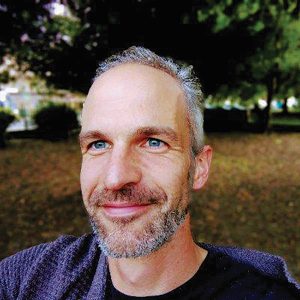 PROFESSOR WILL MAY
PROFESSOR WILL MAY
Professor in Modern and Contemporary Literature, University of Southampton, UK
FIELD OF RESEARCH: Modern and Contemporary Poetry
RESEARCH PROJECT: Exploring the role of mentoring in the creative industries
FUNDERS: Arts and Humanities Research Council, Foyle Foundation
“I love the breadth and restlessness of research in English literature,” says Will. In his work, he has studied the relationship between music and poetry, ‘whimsy’ as a literary mode, and the connections between solitary poets and their wider networks and communities. To do this, he has interviewed poets about their practice, dug through literary archives and made connections across disciplines to find new approaches in critical and creative thinking. Literature research often is interdisciplinary, drawing on texts from history, philosophy and economics to frame questions and construct arguments.
Reference
https://doi.org/10.33424/FUTURUM179
TALK LIKE A LITERATURE RESEARCHER
ANTHOLOGY – a collection of poetry
CREATIVE INDUSTRIES – industries based in individual creativity, skill and talent, such as arts, writing, music, fashion, advertising, computer gaming, television and film
MENTOR – an advisor who helps train and guide a more novice colleague
MENTEE – the recipient of a mentor’s advice and guidance
The romantic image of the lone poet is not true to life, says Professor Will May of the University of Southampton, as writers and poets are supported by a network of mentors who devote time and energy to encourage each other in their creative endeavours. Will is exploring the role of mentoring in the creative industries and has uncovered how both public initiatives and informal mentoring communities. But Will’s work is about more than just appreciating literary history – he has also put his findings into practice by creating a mentoring programme for young poets, allowing them to develop their talents under the guidance of experienced writers.
WHAT NETWORKS HAVE SUPPORTED CONTEMPORARY BRITISH POETS?
Contemporary British writers and poets have had access to both public and informal mentoring and support. The UK has nurtured literary expression through initiatives run in local libraries, community organisations, like Centerprise in Hackney, and formal schemes, like the Ledbury Emerging Critics Programme. We can also trace its history by looking at correspondence between poets, publishers and editors across the country.
Equally (or perhaps even more) important are informal mentoring and networking groups. Will cites the example of poets Malika Booker and Roger Robinson, who founded a writer’s collective that met weekly in Malika’s kitchen. “It grew organically, creating a space for marginalised writers to hone their craft,” he says, “and now Malika’s Kitchen has not only become a regular scheme run by the Poetry Society, shaping the work of some of our best contemporary writers, but has satellite groups across the world.” During his research, Will has discovered that many poets create their own mentoring communities with other poets, joined by their mutual love of writing.
Unlike other sectors, the creative industries are often funded on a project basis, with little support for professional development or training. Groups like Malika’s Kitchen have played a vital role in helping writers grow through a shared exploration of their writing. Will is exploring this role by collecting stories from mentors and mentees who participated in these informal networks, to discover how their mentoring experience shaped them as artists.
Will’s research is more than just retrospective. He believes mentoring in poetry can act as a model for the creative industries. “People tend to read, write and publish poetry to enrich their lives rather than fill their pockets,” he explains. “This insulates poetry from creative sectors more dependent on market trends and means it has been able to develop sustained knowledge and expertise about mentoring that hasn’t yet crossed into other creative industries.” The poetry community is an excellent case study for mentoring in the creative industries and a model for other artistic and literary communities.
WHAT IS THE POETRY AMBASSADORS SCHEME?
In partnership with the Winchester Poetry Festival and the literature development organisation Artful Scribe, Will launched the Poetry Ambassadors scheme to connect experienced poets like Romalyn Ante with young poets like Eve Wright. “Formal mentoring schemes can act as lightning rods of change for the mentors and mentees involved,” says Will. Mentees gain confidence in their ability and develop greater ambitions for their writing. Mentors in turn benefit from the opportunity to work with a younger generation of writers and contribute to the future of the literary community.
“I’d really like to just feel a little bit more asserted in my writer self, so to speak,” says Eve, of their hopes for the Poetry Ambassadors. “Writing is a very isolated craft, especially when you’re just starting, so I’ve really appreciated the support with discovering my poems with another poet.” Eve’s mentor, Romalyn, helps them with both the technical and psychological elements of the craft. “It’s hard for anyone to believe they’ll get attached to words until you’ve put your heart into putting them in a certain order and suddenly giving them the cut feels like you’re losing them forever,” Eve explains. “My mentoring partnership with Romalyn has helped me learn to let go when I edit my poems.”
Eve’s experience is familiar to Romalyn. She herself was mentored in the past and knows what it’s like to be taking the first steps to being a poet and how important it is to have a guide. “The poetry world is both big and small, but if you’re just starting out, especially as a young person, then it can seem quite daunting and overwhelming,” Romalyn explains. This can be especially true if a would-be poet lacks role models. “I didn’t come from a literary background,” she says, “so I really appreciated having a mentor as I began my poetry journey. It really was a tremendous help to have someone to guide me. I want to support young poets like Eve, and I want to learn from the experience myself.”
Poetry Ambassadors is launching its first anthology of poetry with Broken Sleep Press in October 2021. Beyond helping mentees and mentors, the mentoring scheme has helped transform the organisations that run it, deepening the collaborations between the University of Southampton, the Winchester Poetry Festival and Artful Scribe, broadening their horizons and making them more outward-looking. “It is helping us work together to better support young people across the region,” Will says. Will’s research shows that the study of literature is far from an ivory tower endeavour – poetry and writing create communities, give a voice to young or marginalised groups, and allow them to shape their culture and society through their creative works.
 PROFESSOR WILL MAY
PROFESSOR WILL MAY
Professor in Modern and Contemporary Literature, University of Southampton, UK
FIELD OF RESEARCH: Modern and Contemporary Poetry
RESEARCH PROJECT: Exploring the role of mentoring in the creative industries
FUNDERS: Arts and Humanities Research Council, Foyle Foundation
“I love the breadth and restlessness of research in English literature,” says Will. In his work, he has studied the relationship between music and poetry, ‘whimsy’ as a literary mode, and the connections between solitary poets and their wider networks and communities. To do this, he has interviewed poets about their practice, dug through literary archives and made connections across disciplines to find new approaches in critical and creative thinking. Literature research often is interdisciplinary, drawing on texts from history, philosophy and economics to frame questions and construct arguments.
WHAT PRACTICAL IMPACT CAN WRITING HAVE?
“To write is to find a voice, and to write better is to draw on those around you to develop it,” says Will. “Writing can be used to build and support communities.” His research has taught him ways to support writers and writing, a subject he is deeply passionate about. Understanding how writers have succeeded in the past gives us a blueprint for building organisations and institutions to support them and their communities in the future.
EXPLORE A CAREER IN LITERATURE RESEARCH
• The University of Southampton offers the Access to Southampton programme (www.southampton.ac.uk/schools-colleges/access-to-southampton.page) to help students apply to university.
• Verse Mentors (www.poetryandmentoring.com/podcast), Will’s four-part podcast series about poetry and mentoring, explores the crucial role of mentoring for poets.
• The English Department at the University of Southampton has created a series of podcasts discussing texts and study tips to support GCSE and A-level students: www.southampton.ac.uk/english/about/english-podcasts.page
• Will recommends studying English and other languages in school to, “train your ear, eye, and brain to attend to the power and possibility of literature,” before a university degree in English or English literature.
• An English or literature undergraduate degree is often the starting point for literature research, and a PhD or extensive professional writing experience is required for an academic career.
• But the study of literature is interdisciplinary, so the most important skill to develop is your ability to analyse texts. Will’s colleagues in the English Department at the University of Southampton have degrees in history, philosophy and law, showing that a range of subjects could lead to a career in literature research.
HOW DID WILL BECOME A LITERATURE RESEARCHER?
I’ve always loved singing and music of all kinds – from pop, jazz, and folk to classical song cycles. But the more I learnt about songs, the more my attention turned to the words.
I think it was a sibling who inspired my interest in studying literature. I’m the youngest of four, and I remember reading my eldest sister’s English essays and being very confused but intrigued!
I did my PhD on the extraordinary British poet Stevie Smith and I adore her writing. I love the way she stubbornly makes room for all the feelings and encounters of everyday life we didn’t realise we could make into poems: frogs, hedges, newspaper clippings, rainy parks. Her scratchy drawings and strange half-sung performances really expanded my sense of what a poem could be, as well as what it could be about.
I’m a great believer in creative writing as a way of keeping your thinking creative too. I enjoy writing myself, as well as studying other people’s work. Even if I am teaching an undergraduate course on critical reading, we will often use writing activities to find new ways of thinking about the texts we’re studying.
Writing is a conversation with the world, not a formal exam or a private diary. The more you read and think through what other people are writing, and talk to other people about it, the more freedom you will give yourself to experiment, learn and grow.
Beekeeping and acrobatics are both hobbies I’ve taken up in the last few years and hugely enjoy. Acrobatics is a wonderful (and very undigital) way to think about humans – we leave our worries at the door and become vessels for energy and movement. Beekeeping is fascinating – bees tend to know what they are doing much more than beekeepers do, so it’s mostly a chance to look on in awe at a superorganism doing its dazzling work.
MEET MEMBERS OF THE POETRY AMBASSADORS SCHEME
 ROMALYN ANTE
ROMALYN ANTE
POETRY AMBASSADOR MENTOR
WHAT INSPIRES YOU IN YOUR POETRY WRITING?
I’ve been working as a nurse for almost 10 years and my writing focuses on nursing, especially migrant nurses, as I come from a community of migrant Filipino nurses. I wanted to shed light on the narrative of migrants, and I’m lucky that I wanted to write about something that is already deeply embedded in my own person.
Even though I didn’t have any literary experience, my nursing background has taught me to write. In nursing, you’re taught to pay attention and to observe. You relate with other people and foster empathy. And these techniques I’ve learnt through nursing are the same techniques that we use as writers.
WHAT IS YOUR PROUDEST POETRY ACHIEVEMENT?
I would say that it would be the publication of my first poetry book, Antiemetic for Homesickness. I’m proud that this book allows readers to come to poetry. I have readers who are doctors, nurses, carers. I have readers who are migrants themselves. I think that’s what poetry should be about – poetry should open doors wider. I’m really proud that my work speaks with different readers from different backgrounds.
WHAT DO YOU ENJOY, APART FROM WRITING POETRY?
As well as being a nurse, I also run a Filipino grocery shop with my husband. I enjoy managing it as I get to communicate more with my community, and I enjoy being around food – I love cooking. I also walk my dogs every day, and I like drawing and any other kind of arts and crafts.
WHAT ADVICE WOULD YOU GIVE TO OTHERS WHO WANT TO WRITE POETRY?
Find a mentor to guide you and be open to being taught – it will enhance your own creative practice. I’ve had three mentors and they have been really helpful. I wouldn’t be where I am now if not for their support. A good mentor will guide you and will help you chose what path to take. But, at the end of the day, it is your path, and only you can walk it. Remember, your poetry is yours. It is between you and your work, so think about why you are writing.
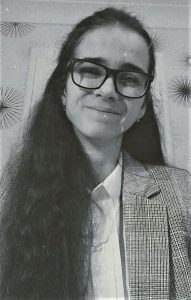 EVE WRIGHT
EVE WRIGHT
POETRY AMBASSADOR MENTEE
WHAT INSPIRES YOU IN YOUR POETRY WRITING?
Oftentimes, it’s me reading into innocuous, or not so innocuous, events or things and trying to juice the poetry out of them. I’m a strong believer that you can make poetry out of anything. I’m a big music listener, so that is a major influence.
WHAT DO YOU ENJOY, APART FROM WRITING POETRY?
I’m a massive science nerd – I’ll have you know my human body, Kevin, with squishy organs is a good writing companion! I’m so much of a science nerd that I’m studying Biomedical Science at university this October.
WHAT IS YOUR PROUDEST POETRY ACHIEVEMENT SO FAR?
I’m getting published in Ambit this July. This is my first publication in a major poetry magazine, and I am still pinching myself. I am probably still pinching myself as you read this!
WHAT ARE YOUR AMBITIONS FOR THE FUTURE?
It would be nice to have a poetry collection with my name on it one day. As an autistic person, I often believed I would never be as worthy of a place in the writing world as my neurotypical counterparts. If I can make just one person feel capable of writing, it would mean the world to me.
WHAT ADVICE WOULD YOU GIVE TO OTHERS WHO WANT TO WRITE POETRY?
Just keep on jamming your foot in all the writing doors (metaphorically) that get shut on you – eventually you will manage to get both feet through. Take every opportunity you can. Of course, never jam your feet in doors at the expense of your mental health. If you aren’t ready for it yet, it is okay to keep some doors closed.
Also, if you have nothing to write, you likely do. Even if it is just “I don’t know what to write”. If you’re ever stuck, just write anything that comes to mind for five minutes. You never know, you may just strike gold.
Writing is a rewarding journey but should also be a companionable one – find structures that can help support you, whether that’s a local writing group, or a national network.
Do you have a question for Will, Romalyn or Eve?
Write it in the comments box below and Will, Romalyn or Eve will get back to you. (Remember, researchers are very busy people, so you may have to wait a few days.)

